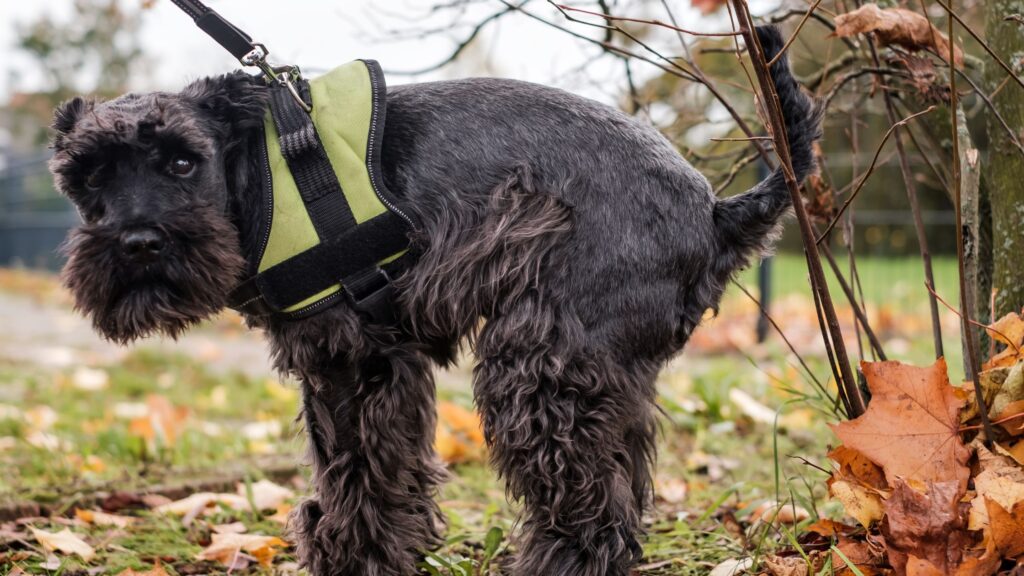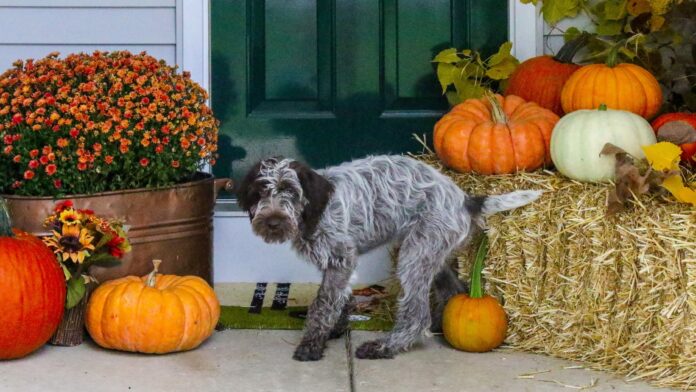Dealing with a dog that poops in the house can be a frustrating and challenging experience. However, understanding the right way to address this issue is crucial for maintaining a positive and healthy relationship with your pet. We will explore how to punish dogs for pooping in house in a humane and effective manner, ensuring your furry friend learns to do their business outside.
Understanding the Reasons Behind Indoor Pooping (How to Punish Dogs for Pooping in House: Complete Guide)
Health Issues: Before you learn how to punish dogs for pooping in house, it’s essential to rule out any underlying health issues. Conditions such as gastrointestinal problems, infections, or dietary changes can lead to unexpected accidents indoors. A visit to the veterinarian can help identify and treat any medical problems that might be causing your dog’s indoor accidents.
Behavioral Problems: Behavioral issues such as anxiety, stress, or lack of proper training can also contribute to indoor pooping. Dogs can develop anxiety from changes in their environment, loud noises, or being left alone for extended periods. Understanding these root causes can help you address the problem more effectively. Training and reassurance can alleviate these issues, making it easier to train your dog to poop outside.
Effective Methods to Punish Dogs for Pooping in House
Positive Reinforcement: One of the most effective methods on how to punish dogs for pooping in house is to use positive reinforcement. Reward your dog with treats and praise when they successfully go outside. This method encourages them to repeat the desired behavior. Consistently rewarding your dog for good behavior reinforces the habit and helps them understand that pooping outside is the correct action.
Timely Correction: If you catch your dog in the act, a firm “No” can be effective. Immediately take them outside to finish their business. This helps them associate the correct behavior with the right location. Timely intervention is crucial, as dogs have a short attention span and need immediate feedback to understand what is expected of them.
Consistent Routine: Maintaining a consistent feeding and walking schedule can prevent accidents. Dogs thrive on routine, and having regular times for meals and outdoor breaks can reduce the chances of indoor pooping. A predictable schedule helps your dog understand when it’s time to go outside, reducing the likelihood of accidents inside the house.
Common Mistakes to Avoid How to Punish Dogs for Pooping in House
Physical Punishment: Using physical punishment is never an effective way to punish dogs for pooping in the house. It can lead to fear, anxiety, and even aggression. Always opt for humane methods. Physical punishment can damage the bond between you and your dog and make them fearful of you, which is counterproductive to training.
Delayed Punishment: Punishing your dog after the fact is ineffective. Dogs do not understand delayed punishment and will not connect the correction to the unwanted behavior. It’s essential to correct your dog immediately if you catch them in the act; otherwise, they won’t understand why they are being punished.
ALSO READ: 3 Benefits of Playpen and Crate Training a Puppy
Training Techniques to Prevent Indoor Pooping

Crate Training: Crate training can be a helpful tool in housebreaking your dog. Dogs naturally avoid soiling their sleeping area, so using a crate can encourage them to hold their bladder and bowels until they are outside. Make sure the crate is comfortable and not used as a form of punishment.
Leash Training: Taking your dog out on a leash and guiding them to a specific spot for pooping can reinforce the desired behavior. Praise and reward them when they use the designated area. Leash training helps control where your dog goes and ensures they understand the appropriate place to poop.
Command Training: Teaching your dog commands like “go potty” can create a clear signal for them. Consistently using this command during outdoor breaks can help them understand what is expected. Over time, your dog will learn to associate the command with the action of pooping outside.
Addressing Accidents
Clean Up Properly: Using an enzymatic cleaner to remove any traces of poop can prevent your dog from being attracted to the same spot again. This is crucial in preventing repeated accidents. Regular household cleaners might not completely remove the scent, which can attract your dog back to the same spot.
Monitor Diet: Sometimes, diet can play a role in your dog’s bathroom habits. Consult your veterinarian to ensure your dog is on the right diet that supports regular and healthy bowel movements. Certain foods might cause digestive issues or irregular bowel movements, so a balanced diet is essential.
How to Handle Persistent Problems
Consult a Professional: If the problem persists despite your efforts, consulting a professional dog trainer or a veterinarian can provide additional insights and solutions. They can offer specialized advice and training techniques tailored to your dog’s specific needs.
Assess Environment: Ensure that your dog’s environment is conducive to their needs. A calm and stress-free environment can reduce anxiety-related accidents. Make sure your dog has a safe and comfortable space, and avoid drastic changes that could cause stress.
Long-Term Solutions
Regular Exercise: Regular exercise is essential for your dog’s overall health and can help regulate their bowel movements. Ensure they get plenty of physical activity to prevent indoor accidents. Exercise also reduces stress and anxiety, which can contribute to indoor pooping.
Socialization: Proper socialization can reduce anxiety and stress, which are common causes of indoor pooping. Expose your dog to different environments, people, and other dogs to build their confidence. A well-socialized dog is less likely to develop anxiety-related behaviors.
Conclusion
Learning how to punish dogs for pooping in house effectively involves a combination of positive reinforcement, timely correction, and consistent training. Understanding the underlying causes and addressing them with patience and care will lead to long-term success in housebreaking your dog. Always prioritize humane and positive methods to maintain a strong bond with your pet.
FAQs
Q1: Is it okay to use a crate to punish my dog for pooping in the house?
No, crates should never be used as punishment. They should be a safe and comfortable space for your dog.
Q2: How long does it take to housebreak a dog?
The time it takes can vary depending on the dog’s age, breed, and previous training. Consistency and patience are key.
Q3: What should I do if my dog continues to poop in the house despite training?
Consult a veterinarian or a professional dog trainer to rule out any medical issues or to get additional training advice.
Q4: Can diet affect my dog’s pooping habits?
Yes, diet can play a significant role. Ensure your dog is on a balanced diet suitable for their age and health needs.
Q5: Are there any products that can help with housebreaking my dog?
Yes, products like enzymatic cleaners, training pads, and outdoor potty stations can assist in the housebreaking process.


